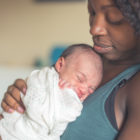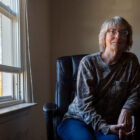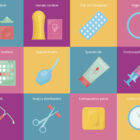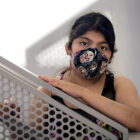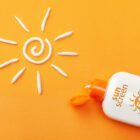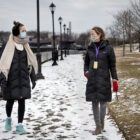I-Team In-Depth
Tourette Syndrome Awareness Rises After Spike In Reported Tics And Billie Eilish’s Reveal Of Her Childhood Diagnosis
|
As a fifth grader growing up in Stratford, Bridget Phelan-Nelson used to shout the same string of obscenities every morning. “I would repeat it over and over on my walk to school so I wouldn’t say it at school,” recalls Phelan-Nelson, now 39. She also had multiple motor tics throughout middle school and high school, including a nose twitch that earned her the nickname “Bunny.”
Even though motor and vocal tics are telltale signs of Tourette syndrome, a neurological condition characterized by involuntary, repetitive motions and sounds, Phelan-Nelson wasn’t diagnosed with Tourette until she was 16 years old. “The thing most people don’t understand about Tourette is that you can hold it back for some time, but if you don’t do it, it’s going to hurt,” she said. “It’s like the itch you can’t reach at the bottom of your foot, and it pesters you until you scratch it.”
An August study by the Centers for Disease Control and Prevention (CDC) found that 1 in 50 school-age children have some type of tic disorder, including Tourette syndrome.


